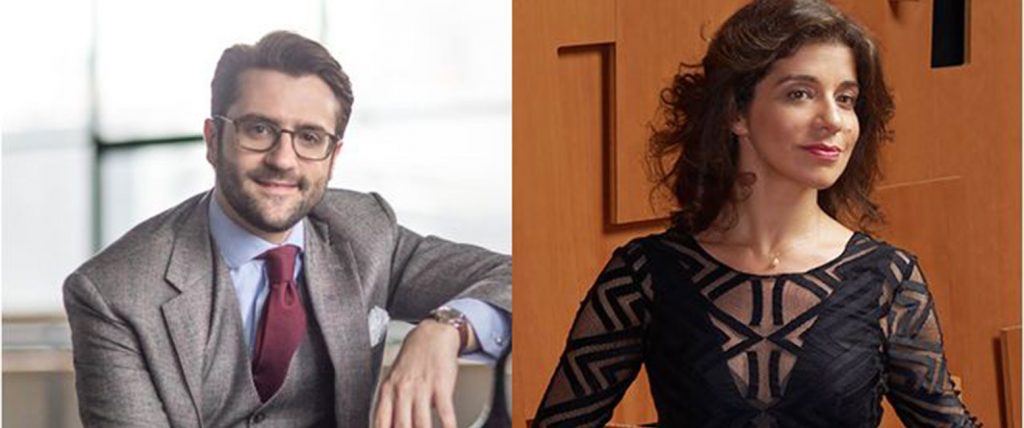The UCLA Herb Alpert School of Music presents the “Dialogues and Re-imaginings Piano Festival,” a three-day event that will feature the responses of contemporary composers to canonic works for the piano. The pairings will result in an exuberant musical dialogue between the past and the present in the intimate setting of the Ostin Music Center Recording Studio.
Conceived and programmed by Inna Faliks, an internationally acclaimed pianist and UCLA professor and head of keyboard studies at the music school, the first-of-its-kind piano festival features 17 world premieres by composers including New Yorkers Timo Andres and Paola Prestini, and UCLA composers Richard Danielpour, David Lefkowitz, Ian Krouse, Peter Golub, Mark Carlson and Tamir Hendelman, as well as UCLA student composers. Performances by Faliks, pianist and lecturer David Kaplan, and their UCLA piano students will bring the works to life.
Faliks’ interest in the response genre began in 2008, when she performed in the New York, Los Angeles and Chicago premieres of “13 Ways of Looking at the Goldberg Variations.” She found the multi-movement, time-shifting adventure of the genre intriguing, so when she joined the faculty at the school of music, she knew she found a creative home for this bold category of music.
“I cannot think of a more fitting place to explore and celebrate this quickly rising genre than UCLA,” Faliks said. “Our audiences will hear new music, juxtaposed with Bach, Beethoven, Schumann, Ravel, Chopin, and respond in a fresh way.”
The work of UCLA student composers will be premiered on the first night during a program called “UCLA Goldberg.” The student composers wrote variations on Bach’s aria from the Goldberg Variations. Adding to the excitement of these premieres, the program will also include a work by PDQ Bach, (Bach’s fictional “lost son” as imagined by Peter Schikele), as well as a jazz improvisation. The works will be performed by piano students from the studios of Faliks and Kaplan.
The second night of the festival, “Danielpour and Chopin: Preludes and Etudes,” features a performance of the renowned composer Richard Danielpour’s colorful and deeply personal “The Enchanted Garden — Preludes, Books 1 and 2.” The original work will be interspersed with the Chopin etudes that informed Danielpour’s creative process, performed by UCLA piano students.
Danielpour, a newly appointed professor of composition at UCLA, said the work was inspired by dreams and memories. Written 17 years apart and divided into two books, he explained, “While they were initially meant to be presented separately, it occurred to me that both books performed together would be suitable for this festival, and it’s the first time that all 12 preludes will be performed on the same concert.”
The final evening of the festival, “Call and Response: A piano marathon with Inna Faliks and David Kaplan,” presents performances by Kaplan and Faliks. Kaplan will perform Robert Schumann’s “Davidsbundlertanze,” a 16-piece cycle, combined with works by 16 composers. Kaplan’s performance of this work was selected as one of the “Best Classical Music Performances of 2015,” by the New York Times.
The festival will conclude with Faliks’ performance of 6 Bagatelles Op. 126 by Beethoven, and six world-premiere responses to them, written by the UCLA composition faculty: Danielpour, Lefkowitz, Krouse, Golub and Carlson. Faliks will then perform the fiendishly difficult “Gaspard de la Nuit” by Maurice Ravel, which she has performed extensively and also recorded. Gramophone Magazine praised that recording saying: “What’s intriguing about the recording is Faliks’ prowess in rendering each piece with a keen combination of expressive acuity and textural clarity.”
She will premiere two responses to the Ravel — by composers Prestini and Andres.
“Dialogues and Re-imaginings UCLA Piano Festival” will be held June 1–3, 2017. Admission is free. The festival is made possible by the David and Irmagard Dobrow Fund. The commissioned works are made possible by the UCLA Davise Fund.


